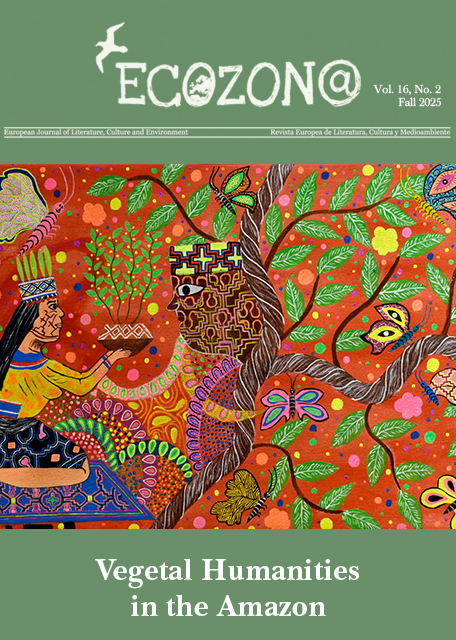Narrating Disruptive Encounters in the Forest: Hunting, Animal Lives, and Ecology
DOI:
https://doi.org/10.37536/ECOZONA.2024.15.2.5357Parole chiave:
hunting, anthropomorphism, Felix Salten, Horst Stern, Peter WohllebenAbstract
Over the last century, three popular writers and media personalities have written bestsellers and created TV programs in order to alert the general public to the suffering of wild animals as well as the deleterious effects on young trees caused directly or indirectly by hunting and forestry practices. Austrian journalist and writer Felix Salten published Bambi: A Story of Life in the Woods (1923), using a baby deer’s perspective. German journalist and literary author Horst Stern shocked the nation with his TV program Remarks about the Stag (1971), which shows the brutality of hunting; his 1989 Jagdnovelle (The Last Hunt) weaves together a hunter’s perspective with his prey animal’s experience. In recent years, German forester Peter Wohlleben has shifted the focus from animals to plants by publishing a series of popular books about the forest, starting with The Hidden Life of Trees (2015). This essay examines how Salten, Stern, and Wohlleben all humanize their animal and plant characters, including through a form of “critical anthromorphism” (Mossner)—and are criticized for it. They also incorporate ethology, i.e. observations of animal behavior and the forest environment, as well as scientific knowledge, as they attempt to evoke their audience’s empathy for their nonhuman characters. Hunting pressure and the violent disruption of the lives of the animals leads to an “ecology of fear” instead of an “ecology of subjects” that would align better with changing perceptions of “nature” (Soentgen). Ethical questions concerning the mass killing of Europe’s largest mammals remain as it does not succeed in reducing deer overpopulation or damage to the forest ecosystem, perpetuing Germany’s forest/game conflict.
Downloads
##submission.downloads##
Pubblicato
Fascicolo
Sezione
Licenza
Authors who publish with this journal agree to the following terms:
a) Authors retain copyright and grant the journal right of first publication with the work simultaneously licensed under a Creative Commons Attribution License that allows others to share the work with an acknowledgement of the work's authorship and initial publication in this journal (CC BY-NC for articles and CC BY-NC-ND for creative work, unless author requests otherwise.
b) Authors are able to enter into separate, additional contractual arrangements for the non-exclusive distribution of the journal's published version of the work (e.g., post it to an institutional repository or publish it in a book), with an acknowledgement of its initial publication in this journal.
c) Authors are permitted and encouraged to post their work online (e.g., in institutional repositories or on their website) prior to and during the submission process, as it can lead to productive exchanges, as well as earlier and greater citation of published work (See The Effect of Open Access).










